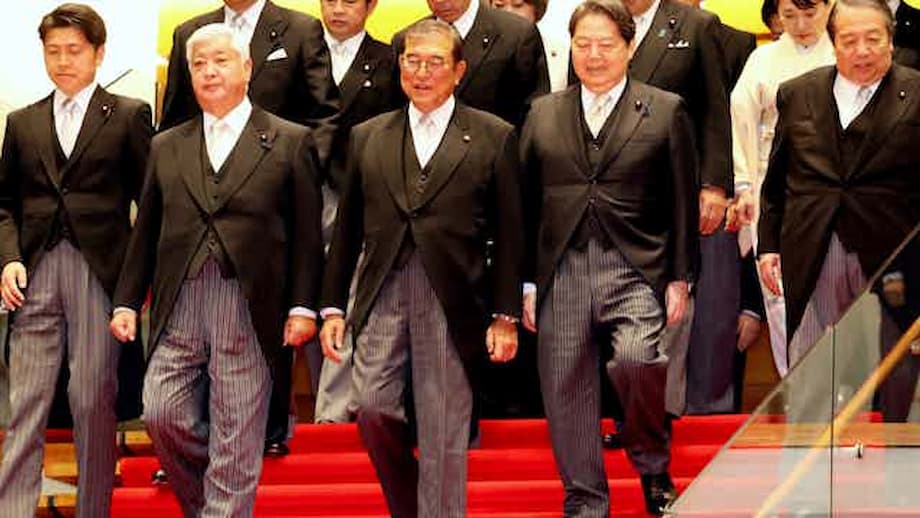Japan’s Gender Equality Crisis: Why the World Is Watching
Japan, long celebrated for its economic prowess and cultural influence, now finds itself under intense global scrutiny for a very different reason: its persistent and worsening gender equality problem. In 2025, Japan ranked 118th out of 148 countries in the Global Gender Gap Index, the lowest among G7 nations and one of the poorest globally. This ranking is not just a number—it reflects deep-rooted issues in political representation, workplace equality, and legal protections for women. Recent decisions by the Japanese government, particularly its move to halt funding for the United Nations Committee on the Elimination of Discrimination against Women (Cedaw), have brought these issues to the forefront of international debate.
What Sparked the Latest Controversy?
The immediate catalyst for the current crisis was Cedaw’s recommendation in late 2024 that Japan revise its male-only imperial succession law. The 1947 Imperial Household Law allows only men from the patrilineal line to ascend the Chrysanthemum Throne, a tradition that has persisted for centuries. Cedaw’s call for reform was based on principles of gender equality and the shrinking pool of male heirs within the imperial family. Emperor Naruhito, who turned 65 in February 2025, has only three male heirs, raising concerns about the future stability of the monarchy.
Despite overwhelming public support—polls show around 90% of Japanese citizens favor allowing female emperors—successive governments have resisted change, citing the importance of maintaining an unbroken male imperial lineage. The issue is not merely symbolic; it highlights the broader reluctance of Japanese policymakers to address structural discrimination against women.
Japan’s Response: Halting UN Funding
In January 2025, the Japanese government announced it would freeze voluntary funding for Cedaw, a move widely interpreted as retaliation for the committee’s recommendation. The Foreign Ministry informed the UN Office of the High Commissioner for Human Rights that Japan’s contributions should not be used for Cedaw activities. A planned visit by Cedaw committee members to Japan was also canceled.
Foreign Ministry spokesperson Toshihiro Kitamura explained that the government does not view imperial succession as a basic human right and therefore does not consider the male-only rule discriminatory. He stated, “Succession to the imperial throne is a matter affecting the foundations of the nation and it is inappropriate for the committee to address the Imperial House Law.”
However, critics argue that this stance is out of step with international norms and Japan’s own treaty obligations. Human Rights Watch warned that Japan’s actions could set a dangerous precedent, encouraging other countries to retaliate against UN human rights bodies when faced with uncomfortable recommendations.
How Did Japan Get Here? The Roots of Gender Inequality
Japan’s gender equality challenges are not new. The country ratified the Convention on the Elimination of All Forms of Discrimination Against Women in 1985, but progress since then has been slow and uneven. While Japan has promoted gender equality on the international stage—most notably through the “Womenomics” initiative under former Prime Minister Shinzo Abe—domestic reforms have lagged far behind.
Women remain severely underrepresented in politics. The current cabinet of Prime Minister Ishiba Shigeru includes only two women out of 20 members, down from five previously. This decline has drawn criticism both domestically and abroad, with many viewing it as a sign that gender-equality policies are not a priority for the government.
In the workplace, women face persistent barriers to advancement, wage gaps, and limited access to leadership roles. Legal protections against gender-based violence and workplace discrimination are often inadequate, and Japan has yet to fully criminalize discrimination and harassment. The country also maintains laws requiring married couples to share the same surname, a policy that disproportionately affects women’s autonomy.
The Comfort Women Issue and Historical Injustices
Japan’s uneasy relationship with international organizations on gender issues extends beyond the imperial succession debate. The country has faced repeated criticism for its handling of the “comfort women” issue—women, many from Korea and other Asian countries, who were forced into sexual slavery by the Japanese military during World War II. Cedaw and other UN bodies have urged Japan to recognize the gravity of these crimes and provide reparations to survivors. Official apologies have often been coupled with denials or efforts to dilute past statements, further straining relations with the international community.
International Backlash and Diplomatic Fallout
Japan’s decision to halt funding for Cedaw comes at a particularly sensitive time. This year marks the 30th anniversary of the Beijing Declaration and the 25th anniversary of the UN’s Women, Peace and Security Agenda—both milestones in the global movement for gender equality. The move has been widely condemned by human rights organizations and has raised concerns among Japan’s allies, many of whom prioritize gender equality in their diplomatic relations.
Human Rights Watch noted that Japan’s actions, though largely symbolic given that its contributions have not funded Cedaw since 2005, risk undermining the independence of UN human rights bodies. The organization warned that “publicly blacklisting a human rights body for unfavorable recommendations sets a dangerous precedent.”
UN Women Executive Director Sima Bahous, in her 2025 address, emphasized the importance of global solidarity and warned that cuts to gender equality funding “undermine progress, reduce opportunity, jeopardize peace, and leave us all worse off.” She called on member states to recommit to the promises made in the Beijing Declaration and to invest in women’s rights and empowerment.
Japan’s Diplomatic Balancing Act
Japan’s government has sought to downplay the significance of the funding halt. Foreign Minister Iwaya Takeshi stated that Japan “values gender equality and will continue to work with Cedaw,” insisting that the measure is not economic coercion but a clarification of Japan’s position on imperial succession. Nevertheless, the move has been interpreted as a signal to both domestic and international audiences that Japan is unwilling to accept external pressure on sensitive cultural and political issues.
Why Does Imperial Succession Matter So Much?
The imperial succession debate is about more than just who sits on the throne. For many conservatives, the male-only rule is seen as essential to preserving the nation’s identity and stability. The Imperial Household Law, enacted in 1947, was designed to ensure an unbroken male lineage—a tradition that dates back more than a millennium.
However, demographic realities are forcing a reckoning. The imperial family now has only 16 members, including just four men. Prince Hisahito, the only male heir of his generation, is seen as the last hope for maintaining the patrilineal line. If the law is not changed, the risk of a succession crisis looms large.
Internationally, Japan’s position stands in stark contrast to countries like Sweden, which have reformed their succession laws to allow gender equality. Cedaw’s recommendation to Japan was not unprecedented; the committee has previously urged other nations to address discriminatory succession laws and male guardianship systems.
Public Opinion vs. Political Reality
Despite overwhelming public support for allowing female emperors, political will for reform remains weak. Conservative groups such as Nippon Kaigi wield significant influence and view international recommendations as infringements on national sovereignty. The government’s withdrawal of funding from Cedaw may embolden these factions and further stall progress on gender equality.
Broader Implications: Japan’s Place in the World
Japan’s gender equality crisis has implications far beyond its borders. As a leading member of the G7 and a major contributor to international organizations, Japan’s actions are closely watched by allies and partners. The decision to distance itself from Cedaw risks damaging Japan’s international reputation and undermining its credibility on human rights and gender justice.
Experts warn that Japan’s approach could embolden other countries to retaliate against UN human rights bodies, especially at a time when the multilateral system is under strain from funding shortfalls and political polarization. The independence and effectiveness of committees like Cedaw depend on the willingness of member states to accept scrutiny and engage in good faith with international norms.
UN Women’s 2025 report highlighted the urgent need for renewed commitment to gender equality, noting that only two out of 14 indicators under Sustainable Development Goal 5 are close to being met globally. The report called for increased investment, stronger legal protections, and greater political participation for women worldwide.
What Needs to Change?
To bridge the gap between its international rhetoric and domestic reality, Japan must address structural barriers to gender equality. This includes:
- Reforming the Imperial Household Law to allow female succession
- Increasing women’s representation in politics and leadership positions
- Strengthening legal protections against discrimination and gender-based violence
- Confronting historical injustices, including the comfort women issue
- Reengaging with international bodies and adopting the Optional Protocol to Cedaw, which allows individuals to file complaints
Without meaningful reform, Japan’s standing on gender equality will continue to decline, both at home and on the world stage.
In Summary
- Japan ranks 118th out of 148 countries in the 2025 Global Gender Gap Index, the lowest among G7 nations
- The government halted funding for the UN Cedaw committee after it recommended revising Japan’s male-only imperial succession law
- This move has drawn international criticism and risks damaging Japan’s reputation on gender equality
- Japan’s gender equality challenges include low political representation for women, workplace discrimination, and inadequate legal protections
- Public support for female emperors is high, but conservative political factions resist reform
- Experts warn that Japan’s actions could set a dangerous precedent for other countries to retaliate against UN human rights bodies
- Meaningful progress will require legal reforms, increased political participation for women, and renewed engagement with international norms












